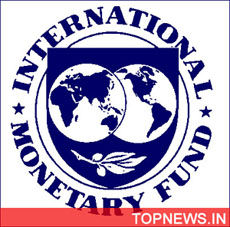IMF okays next 2.8 billion dollar loan to Ukraine
 Kiev - The International Monetary Fund (IMF) agreed to greenlight an additional 2.8 billion dollars assistance loan to Ukraine, IMF officials in Kiev said on Friday.
Kiev - The International Monetary Fund (IMF) agreed to greenlight an additional 2.8 billion dollars assistance loan to Ukraine, IMF officials in Kiev said on Friday.
An IMF mission visiting the former Soviet republic recommended Ukraine receive the badly-needed credit after meetings with the country's government.
At least half of the money to be advanced by the IMF will go towards balancing Ukraine's budget, mostly by helping service foreign-issue bonds, Ukraine Prime Minister Yulia Tymoshenko said, according to an Interfax news agency report.
An IMF team led by mission head Ceyla Pazarbasioglu had been in Ukraine for more than a week discussing a continuation of loans.
The Fund in February refused to advance the second tranche of a total 16.5 billion dollar loan, because Ukraine's government had failed to enact reforms as per the loan terms.
The first tranche of the loan, 4.5 billion dollars, was given to Ukraine in November.
"We have agreed (with the Tymoshenko government) to recommend to Fund headquarters another tranche of 2.8 billion dolars," Pazarbasioglu said at a Kiev press conference.
A final IMF approval of the loan would depend on the Tymoshenko government's sending a formal letter to IMF headquarters, confirming in writing Kiev was in agreement with the terms of the second tranche.
An IMF decision would come in May, Pazarbasioglu said.
Provided Ukraine continued to meet IMF conditions a third tranche, also of 2.8 billion dollars, could be made available "relatively quickly," she added.
The two 2.8 billion dollar tranches newly agreed upon by the IMF and Ukraine were a change from loan terms agreed last year, originally forseeing a 4.5 billion dollar credit to Ukraine in November 2008, a second 1.87 billion dollar credit in February 2009, and a third 3.73 billion dollar credit in May 2009.
IMF and Ukrainian officials had argued over the use of the first tranche of the loan, with the Tymoshenko government wishing to use the money primarily to cover the budget deficit, and the IMF insisting the money be used to refloat fragile Ukrainian banks. Ukrainian deficit-spending was another problem.
The IMF refused to issue the scheduled second tranche of the loan programme, a planned 1.87 billion dollars, as a result of the dispute.
Ukraine's government on Thursday announced a refinancing plan for seven weak banks, according to Tymoshenko "exclusive of any money we might get from the IMF."
A second IMF-pleasing step came earlier in the week, with Tymoshenko ordering wide-reaching reforms of budgetary policy, cuts to food and energy price subsidies, and slashed social support payments.
These cuts will be highly unpopular with middle- and lower-income Ukrainians.
Pazarbasioglu praised Tymoshenko's cost-cutting, saying Ukraine's economy had "weathered much of the shock" of the international financial crisis, setting the stage for economic recovery.
Pazarbasioglu cited a cheaper national Ukrainian currency the hryvna, stablising inflation, and a slightly-narrowing deficit as indicators Ukraine's economy was turning the corner.
The IMF as a result of the talks retreated from a long-held condition Ukraine should maintain a budget deficit of maximum 3 per cent of GDP, raising the permitted figure to 4 per cent.
Economic indicators still are among the worst in the world, with the IMF on Thursday revising downwards estimates of Ukrainian economic performance to a predicted 8 per cent national GDP contraction in 2009. (dpa)